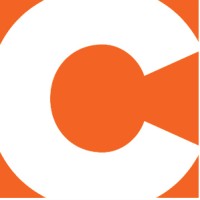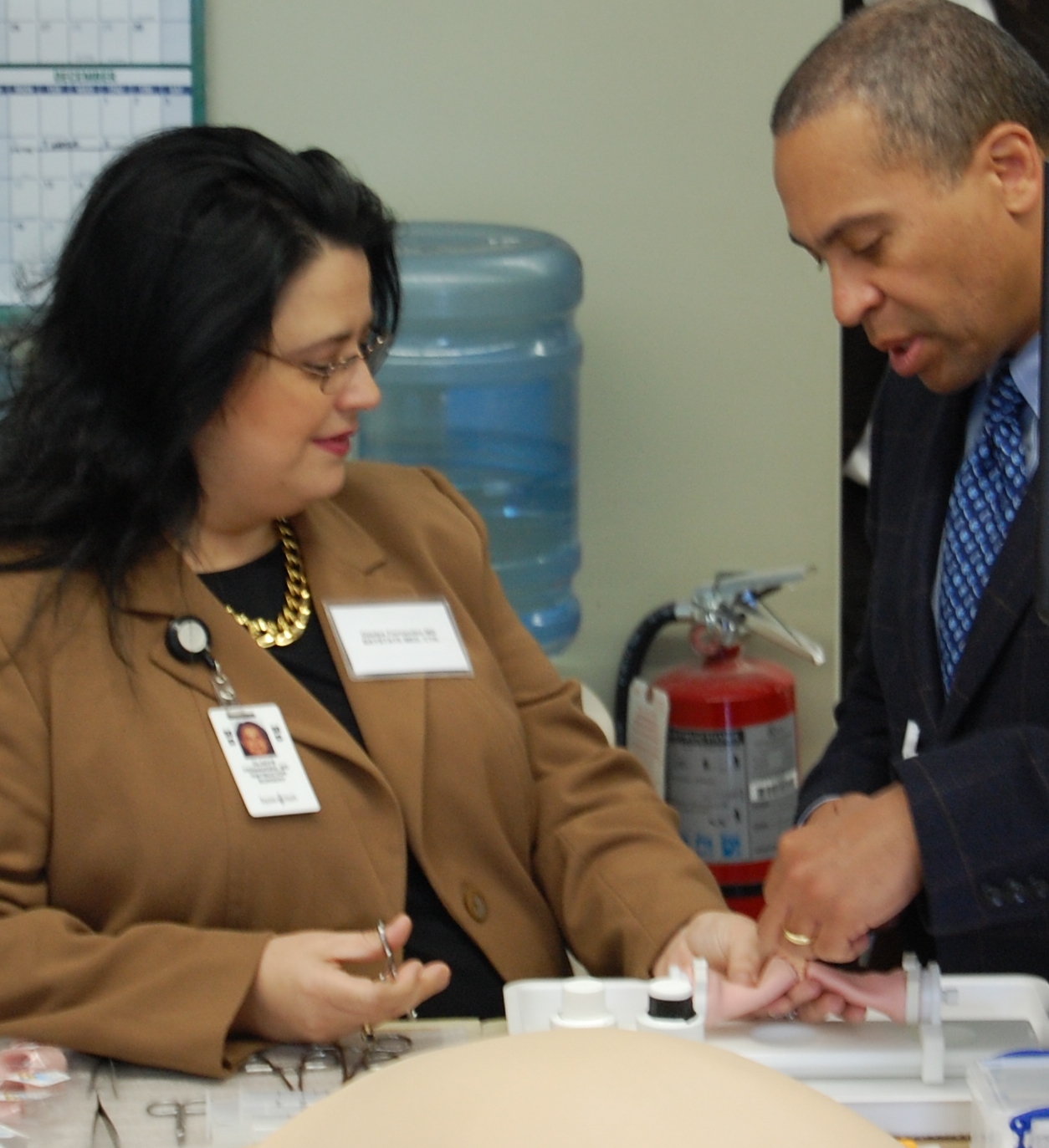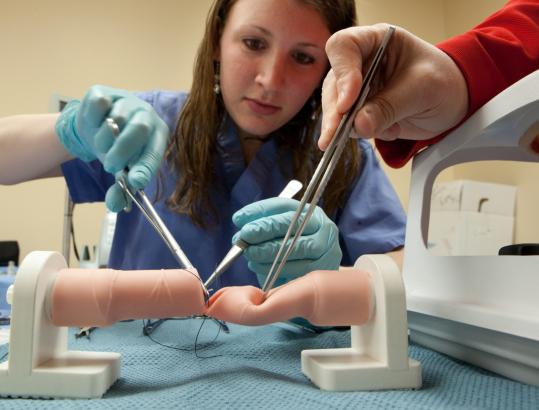Case Study: Tactility and Baystate Medical Center
Springfield Massachusetts
In Dr. Neal Seymour’s capacity as Chief of General Surgery for Baystate Medical Center, surgical resident training is a central responsibility. Baystate’s approach is heavily reliant on the integration of simulation training for residents at all levels through the Baystate Simulation Center and Goldberg Surgical Skills Lab. The hospital has established a prominent role for itself in the field of surgical simulation—acknowledged as one of sixty hospitals to receive accreditation by the American College of Surgeons (ACS) as a Level I Comprehensive Education Institution.
The Chamberlain Group (TCG) was first approached by Dr. Seymour in 2007 seeking to develop a trainer that would help Baystate’s surgical residents gain experience with open bowel anastomosis and practice critical suturing techniques.
Due to the prevalence of laparoscopic procedures, Dr. Seymour and colleagues Drs. Gladys Fernandez and David Page noticed a gap in experience among residents when a surgical case, due to any number of reasons in the OR, might be forced into an open surgery situation. The residents’ laparoscopic primary skills were based upon a whole different approach and toolset — chief among these, the stapler. The companion concern was the tactile learning curve: having little or no hands-on contact with human intestines in laparoscopic cases left the residents uncertain about tissue handling in the open surgical manipulation of bowel.
TCG’s challenge was to create a trainer comprising, first and foremost, realistic synthetic bowel that would feel and react like healthy human tissue when sutured. Although explanted pig tissue has been widely used in this type of training because of its similarities to human tissue, it fails to mimic subtle but essential characteristics of its human counterpart, so in effect does not provide an optimum experiential condition. In addition, explanted organs are vulnerable to spoilage and thus cannot, once sutured, be saved for review and comparison to aid in the evaluation of a trainee’s progress.
The Baystate team, with the full support and encouragement of Surgery Chair, Dr. Richard Wait, began collaborating with TCG to produce this trainer. Their first hurdle was funding — their intent, to secure a grant. The Massachusetts Technology Collaborative (MTC) proved a fruitful resource through the John Adams Innovation Institute (JAII). Baystate, in collaboration with TCG, wrote a grant proposal addressing the worthiness of the planned trainer development and the economic development opportunities inherent in Baystate’s mission as a center for surgical simulation in the local and regional economies.
The grant proposal was submitted to JAII as a two-stage project:
1) To develop the trainer and the bowel material and,
2) To compare the product with other training subjects, synthetic and explanted, vis a vis a face validity study followed by a predictive validity study charting expert and trainee experience/progress working with the bowel.
TCG collaborated with the surgeons to ensure that the attributes of the synthetic bowel replicated the real thing as closely as possible — considering wall thickness, texture, needle ”feel,” and suturability in general.
Once the material quality was perfected and then fashioned into a two-layer small bowel, a nimble, transportable “kit” was built to hold and house it for training.
Dubbed the “Tactility Surgical Learning System,” it includes:
- The anatomy with supporting stand and other elements
- Surgical instruments
- A written curriculum developed by Baystate’s surgery team
- An instructional video featuring Drs. Page and Seymour
- A checklist for learners to confirm they are completing all steps of the operative training process
- A method for tagging and saving anastomoses for comparison to future work
The learner now has the option to work independently on his/her own time and is able to demonstrate skill by reviewing work with his/her instructors that has been completed over a period of time.
The terms of the grant required that the Tactility Surgical Learning System be marketed jointly. While Baystate worked within the walls of the hospital, TCG presented the kit at conferences and exhibitions, with the added measure of promoting Tactility via a link on its homepage.
The Tactility Surgical Learning System has thus far been extremely well received and highly successful.
As a result of this joint effort, TCG’s relationship with Baystate has evolved into one of alliance and confidence and has come to define a new working model for collaborations between TCG and academic institutions.


